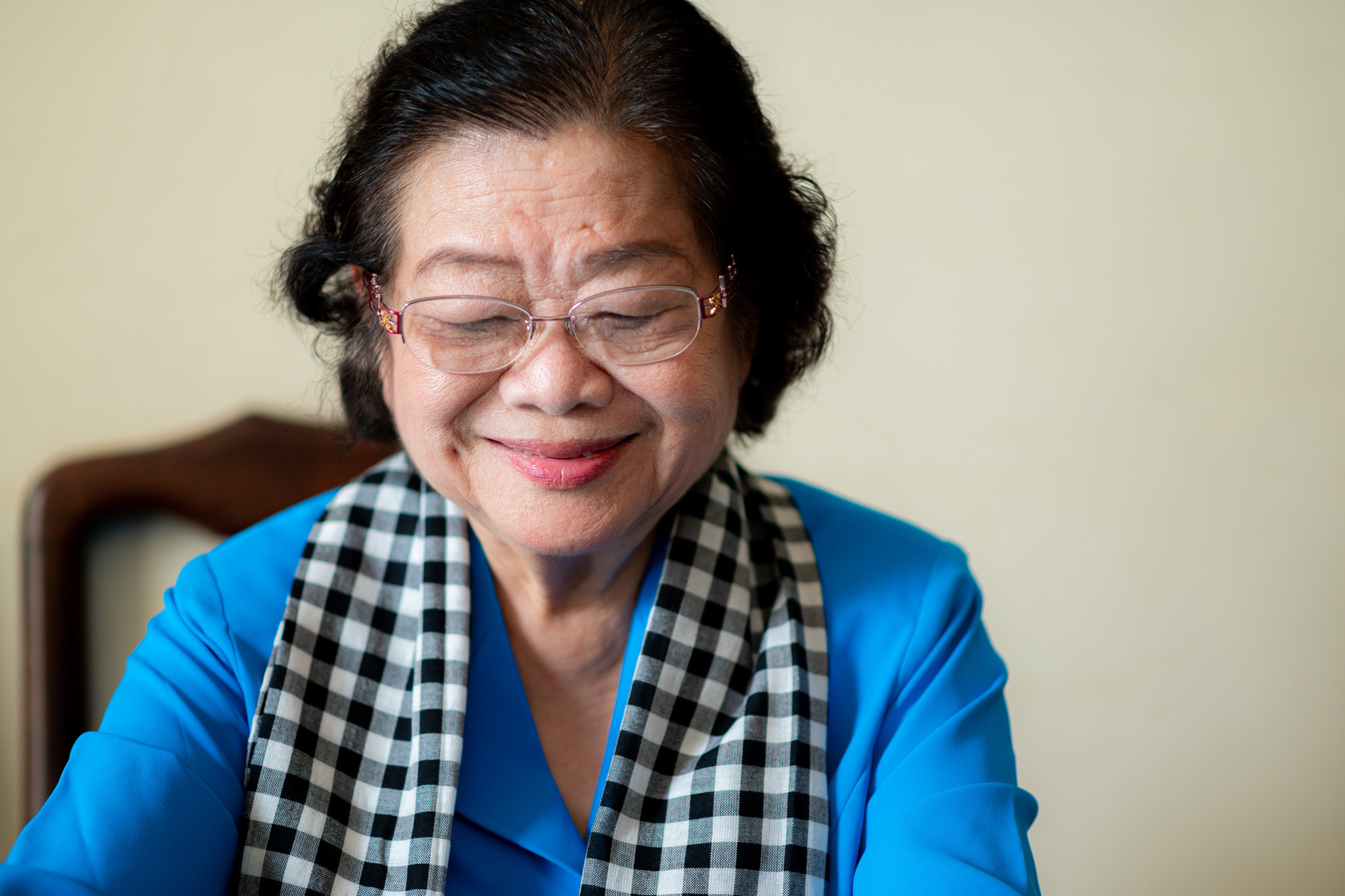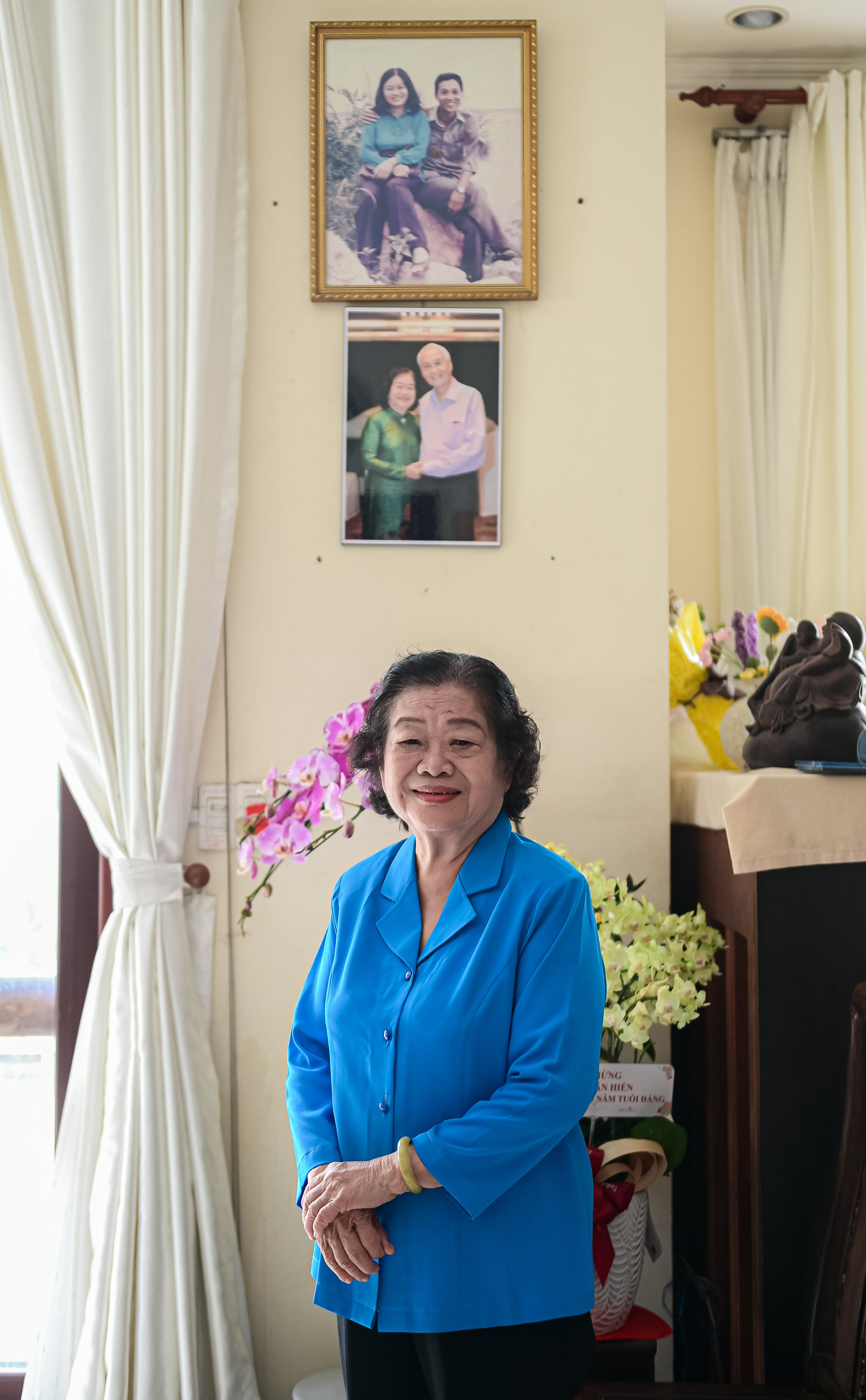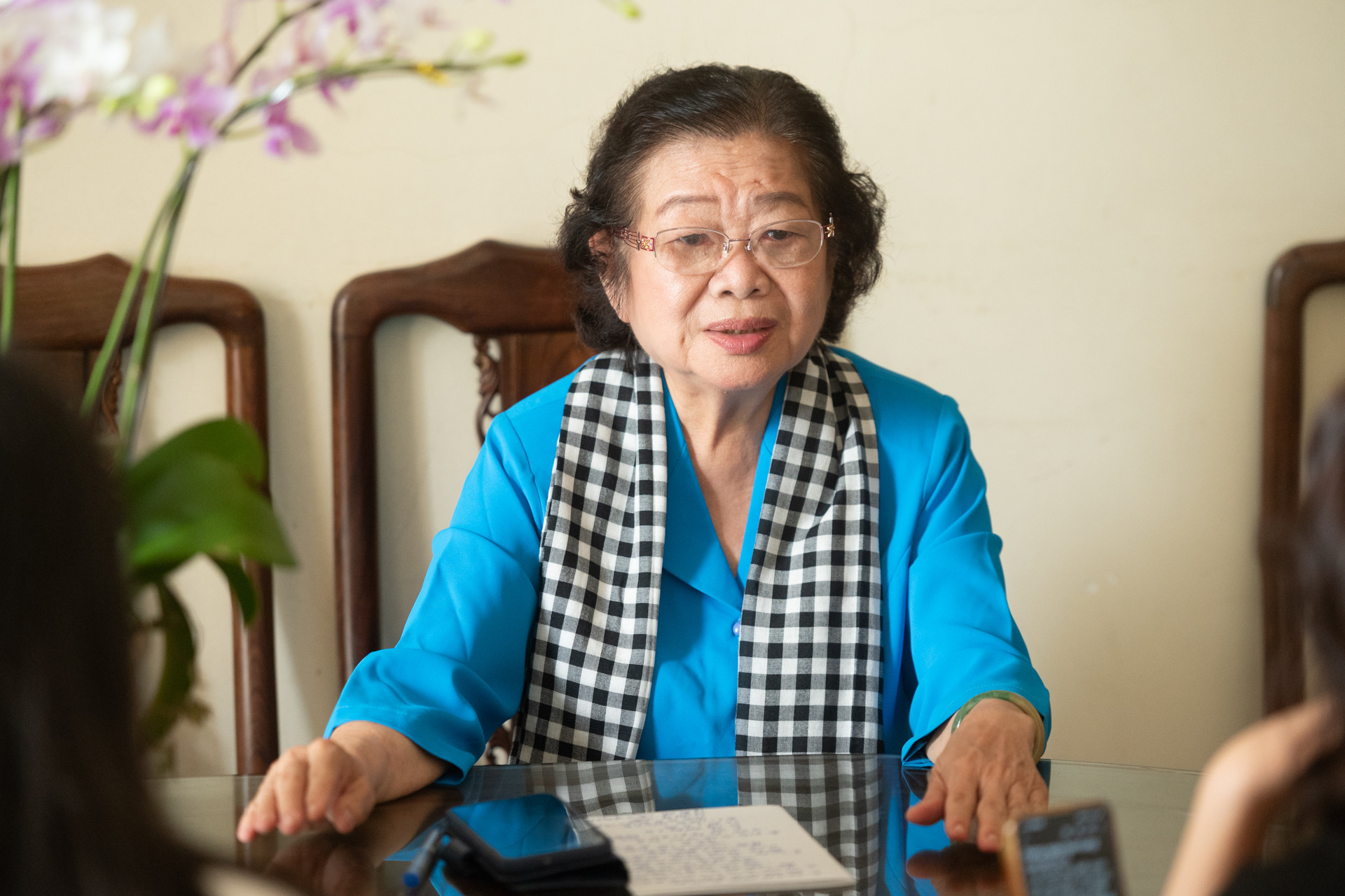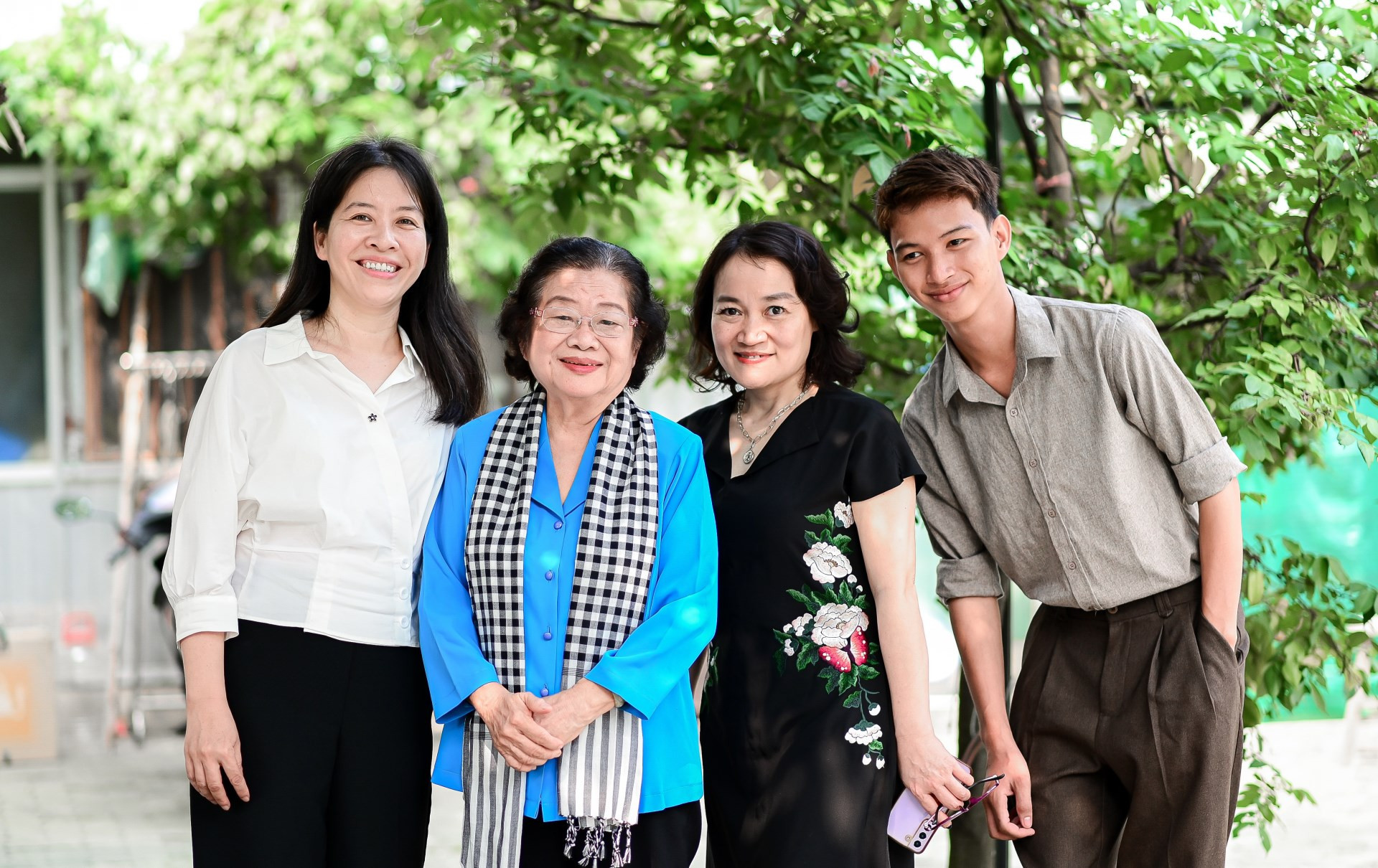On the occasion of the 50th anniversary of Vietnam's reunification, VietNamNet presents a special series titled "April 30 - A New Era."
Experts, military leaders, and historical witnesses share memories, lessons, and insights drawn from the victory of the resistance war against America. These include the power of national unity, mobilizing people's strength, international support, diplomacy, military strategy, and the importance of internal strength in national building and defense.
We invite readers to meet living legends - former special forces, political prisoners, and participants in student and urban movements - who dedicated their youth, faith, and determination to the cause of national victory.
Part 1: The prison memories of Former Vice President Truong My Hoa
Madam Truong My Hoa, fifty years of reunification marks a historic milestone for the nation. What does it mean to you personally?
The 50th anniversary of reunification holds profound meaning for both the nation's history and for me personally.
My family was deeply rooted in the revolutionary movement. My father was among those who regrouped to the North in 1954, spending 21 years away from us. My mother was active in the revolution and imprisoned twice. All of my siblings - Truong My Le, Truong Cong Minh, Truong Nhut Quang, Truong Minh Nhut, and Truong Thi Hien - also joined the revolutionary cause.

During the war, our family was scattered across the country. My eldest sister, Truong My Le, was arrested twice and gave birth to her daughter, Le Minh Trang, in prison. Her husband, Le Minh Chau, was sentenced to death.
At the time of liberation, my brother Truong Minh Nhut was still lying on a stretcher due to severe injuries from torture. My sister Truong Thi Hien was tasked with leading two young children (Le Minh Canh and Le Minh Trang) across the Truong Son Mountains to Hanoi to reunite with our father and prepare for revolutionary activities.
Thus, reunification was also the moment our family was finally brought together. It was a deeply emotional and long-awaited milestone. Miraculously, every member of my family survived.
Altogether, our family spent a combined total of 48 years in prison. Three generations - grandmother, mother, and children - were imprisoned together at Thu Duc prison. To have our family intact at the moment of peace was nothing short of a miracle - an overwhelming blessing and happiness.

"Youth must have a burning desire to contribute."
Throughout the journey since reunification, you have held many roles. Which job was the most challenging? Which brought you the most unforgettable memories?
Over the past 50 years, I have been entrusted with many tasks, from grassroots to central levels. Every assignment I received was from the trust of the Party, the State, and the people. I never chose my own path - I considered every role assigned to me as an honor and a responsibility.
Looking back, I feel that since I was fortunate enough to survive the war and be reunited with my family, I have no right to complain. Many comrades sacrificed their lives before they could even see victory, let alone have the opportunity to serve the country after peace was achieved.
Thus, my duty was to do my best in whatever role was assigned. Every job had its challenges and advantages. Whenever I encountered difficulties, I committed myself to learning, leaning on collective strength to perform better and serve the people more effectively.
During the war, while imprisoned, I looked above to the Party and Uncle Ho, drawing strength to persevere. In peace, I continued to look to the Party, Uncle Ho, and the people as my guiding stars, pushing myself to give my all.
I have never felt regret for slacking off or allowing wrong thoughts to take hold. Even now, after retirement, I choose not to rest, but to continue contributing.
I dedicate myself to initiatives like the Vu A Dinh Scholarship Fund for ethnic minority students and the "Hoang Sa - Truong Sa Club" supporting young people in coastal and island regions. These efforts nurture the human resources needed to safeguard our nation's borders and seas.
Two lines of poetry always stay with me: "Ask your age - it says stop; ask your heart - it says move forward."
As a former youth movement leader during the war, what advice would you give today’s young generation to help them contribute more to national development?

In 1954, I was just a little girl, standing by the village bamboo grove, waving goodbye to soldiers heading North. As they passed, they would gently pat our heads and tell us to study hard and be good children, promising to return in two years.
We tried to live up to their hopes - but two years turned into decades, and eventually, we too joined the revolutionary struggle.
Therefore, I have deep faith in Vietnam’s youth. Across 4,000 years of building and defending the nation, it is clear that each generation’s sacrifice and renewal have kept our revolutionary flame burning.
Thus, we must educate young people about history and tradition, so they understand their roots, ignite their passion, and fuel their drive to learn and contribute.
Today, it is their time to study hard, develop their talents, and help build a prosperous, powerful Vietnam. Above all, the youth must cultivate a deep desire to serve the nation.
"From a mountain stream straight to the sea."

When I was Secretary of the Tan Binh District Party Committee in Ho Chi Minh City, I had never worked at the national level. Then one day, I was assigned to Hanoi to become Vice President of the Vietnam Women's Union.
It was thanks to the encouragement of Ms. Nguyen Thi Dinh - a legendary figure in the Southern resistance movement. At the time, I had only met her briefly, but during one conversation, she asked about my family and then said, very simply yet persuasively: "You’re a woman - it’s only right for you to serve women’s causes. Should we leave it all to the men?"
Her words struck me deeply. I thought: we must move from a small stream to a river, from a river to the sea. Yet for me, this was more like jumping straight from a stream into the ocean - moving from the South to the North, across cultures, customs, and entirely new responsibilities.
To succeed, I knew I had to learn quickly, adapt, and throw myself into the new environment with full commitment - and I did.

Hien Anh - Ngan Anh - Phuoc Sang